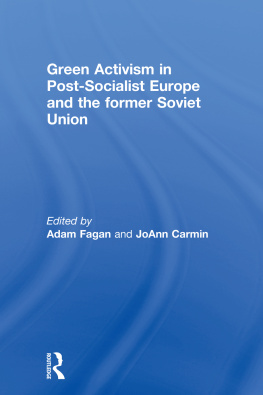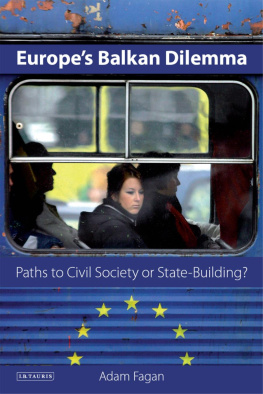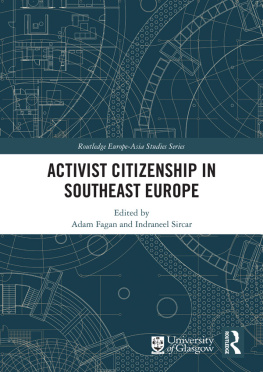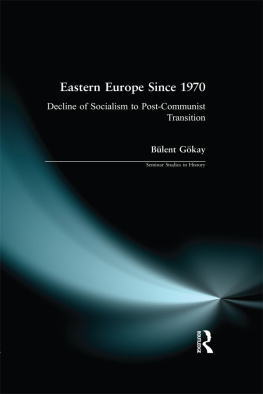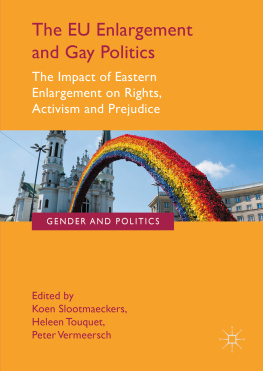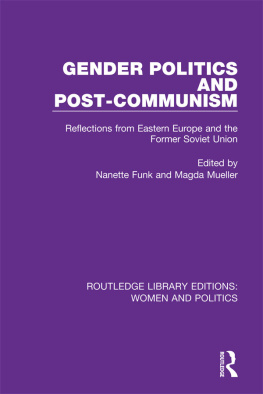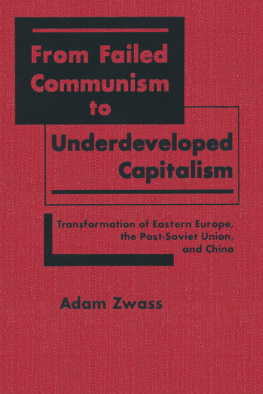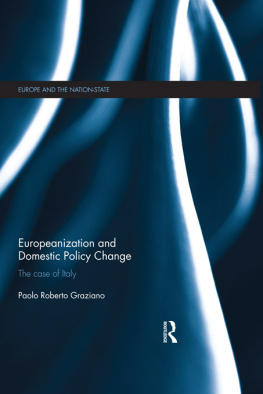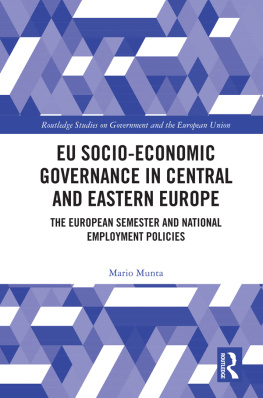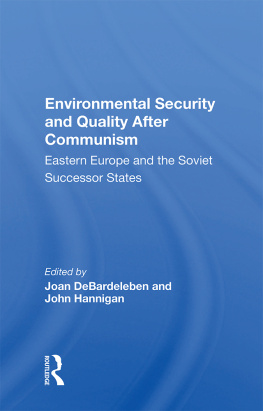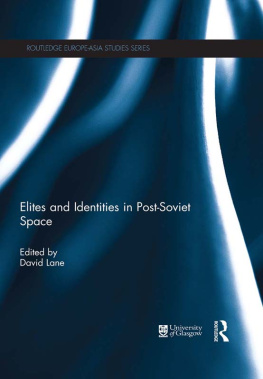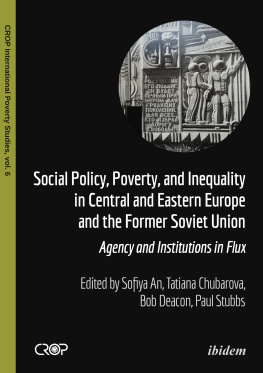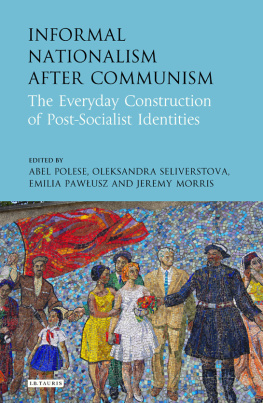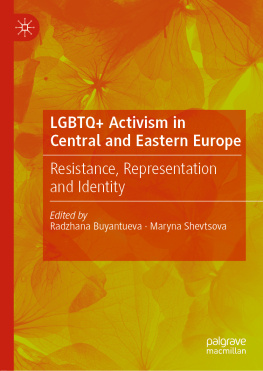Green Activism in Post-Socialist Europe and the former Soviet Union
Green activism played a critical role in the downfall of Soviet-style communism in Eastern Europe at the end of the 1980s. After the revolutions, environmentalists were expected to exert influence within the new democracies and to form the bedrock of the new civil societies that were predicted to flourish across the region; the prospect of EU membership provided activist networks with even greater optimism about their political opportunities. Two decades later what has been the impact of political and economic liberalisation on environmental campaigners and policy advocates? Has access to elites increased with democratisation and Europeanization? To what extent does the realm of environmental politics, within individual states and across the region, continue to represent an optic on change and continuity?
Through country case-studies and comparative analysis of national movements, this edited volume addresses each of these questions and provides a different perspective of green politics in the region.
This book was previously published as a special issue of Environmental Politics.
Adam Fagan is based at Queen Mary, University of London, UK.
JoAnn Carmin is based at the Massachusetts Institute of Technology, USA.
Green Activism in Post-Socialist Europe and the former Soviet Union
Edited by
Adam Fagan and JoAnn Carmin
First published 2011
by Routledge
2 Park Square, Milton Park, Abingdon, Oxon, OX14 4RN
Simultaneously published in the USA and Canada
by Routledge
711 Third Avenue, New York, NY 10017
Routledge is an imprint of the Taylor & Francis Group, an informa business
2011 Taylor & Francis
This book is a reproduction of Environmental Politics , vol. 19, issue 5. The Publisher requests to those authors who may be citing this book to state, also, the bibliographical details of the special issue on which the book was based.
All rights reserved. No part of this book may be reprinted or reproduced or utilised in any form or by any electronic, mechanical, or other means, now known or hereafter invented, including photocopying and recording, or in any information storage or retrieval system, without permission in writing from the publishers.
Trademark notice : Product or corporate names may be trademarks or registered trademarks, and are used only for identification and explanation without intent to infringe.
British Library Cataloguing in Publication Data
A catalogue record for this book is available from the British Library
ISBN 13: 978-0-415-66854-5
Typeset in Times New Roman
by Taylor & Francis Books
Disclaimer
The publisher would like to make readers aware that the chapters in this book are referred to as articles as they had been in the special issue. The publisher accepts responsibility for any inconsistencies that may have arisen in the course of preparing this volume for print.
Contents
| Jo Ann Carmin and Adam Fagan |
| Tanja Brzel and Aron Buzogny |
| Ondej Csa |
| Laura A. Henry |
| Erika Weinthal and Kate Walters |
| Adam Fagan and Indraneel Sircar |
| Michael Waller |
JoAnn Carmina and Adam Faganb
aDepartment of Urban Studies and Planning, Massachusetts Institute of Technology, Cambridge, MA, USA; bDepartment of Politics, Queen Mary, University of London, UK
How have environmental movements and organisations evolved in the two decades since the end of state socialism? Focusing upon how the impact of external forces, the core debates concern how changing political opportunities and access to resources as a consequence of European Union accession have impacted on environmental NGOs, as well as the effects more generally of contentious transnational assistance and tutelage offered to local activist networks by US and west European donors. Theoretical and conceptual debates regarding dependency and co-option, versus channelling and new governance, are examined. Have environmental actors and movements in these transitional states and new democracies aligned with the trajectory predicted by scholars 20 years ago? To what extent have longstanding environmental values, modes of political engagement and submerged networks buffered and even transmuted the impact? Why, and to what extent, do the movements and organisations of the region retain a distinctive character and profile?
Introduction
The fall of state-socialism across the European and Asian continents beginning in the late 1980s initiated a period of optimism about the power and potential of civil society (Szabo 1994). The rise of democratic systems of government and the loosening of state control was accompanied by visions of the ways in which nongovernmental organisations (NGOs) and the general public would be able to shape decision-making and hold officials accountable for their actions. Given the high levels of environmental mobilisation that had taken place in many countries in the region, this was an arena where activists and other civil society actors were anticipated to serve as catalysts for fostering change. The expectation was that environmentalists would employ a diverse repertoire of action to remediate past degradation and promote environmental quality into the future. As actors from across the region navigated the transition from their socialist pasts to consolidated democracies, it was envisioned that their actions would be embedded in organisations that emulated Western models of professionalisation and transnational engagement.
Two decades have now passed since the fall of the socialist regimes, making it timely to reflect on the optimism of 20 years ago and assess the evolution of environmental politics and governance across post-socialist Eurasia. Some environmental organisations, institutions and patterns of mobilisation fit the model envisioned by scholars, governments and commentators of the early 1990s. In addition to adopting professional norms, there is evidence that some of the new post-socialist environmental organisations have been absorbed into pan-European networks and are benefiting from their engagement with western movements and organisations (Bomberg 2007). However, professionalised organisations exist alongside an array of groups that have socialist roots, are nationally and locally oriented, and that rely on practices that were common in the former era (Rohrschneider and Dalton 2002, Carmin 2010b). In other words, despite attempts by the international community and some domestic activists to erase the socialist past, integrate environmentalists into transnational networks and import new practices, institutions and behaviours, it appears that deeply held environmental values, views and approaches persist and continue to imprint contemporary movement actors.
In addition to providing a summary of the scholarly literature on environmental mobilisations across post-socialist-Eurasia and introducing the contributions that follow, here we shall also identify dominant themes and the fault-lines of comparative analysis. Through empirical analysis of environmental activism and organisations in post-socialist states across Europe and the former Soviet Union, the contributions to this volume explore the ways in which current political landscapes, national legacies, regional variations and external forces associated with Europeanisation and transnationalism have shaped present day environmental movements, activism and organisations. This collection presents cases from post-socialist and transition states including those in Central and Eastern Europe, the Balkans, Central Asia and Russia. Whilst each contributor highlights the degree to which state and non-state actors grapple with similar issues and legacies, and face what appear to be the same dilemmas regarding the character and institutionalisation of civil society, the volume also demonstrates how the trajectories and strategic responses of actors vary. These patterns highlight how the focus on common legacies, harmonisation, Europeanisation and transnationalism that has characterised regional scholarship over the years has perhaps overshadowed the ways in which variations in history, culture, national politics and social dynamics have contributed to differentiation in environmental mobilisation and organisations across states.

